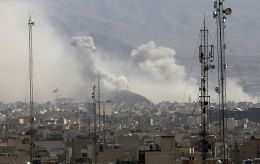"Nobody wants you there." How Russia abducts and breaks Ukrainian children
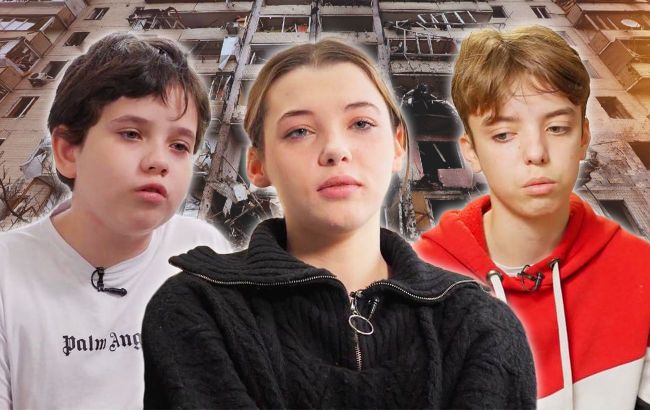 Ukrainian children abducted by Russia (photo: RBC-Ukraine collage)
Ukrainian children abducted by Russia (photo: RBC-Ukraine collage)
Russia has illegally deported hundreds of thousands of children from Ukraine over three and a half years of war. What those who managed to return are saying, and how they are being reintegrated into Ukrainian society - read in the material by RBC-Ukraine.
Disclaimer: All materials about children, including photos and videos, were provided to RBC-Ukraine’s editorial team by the Bring Kids Back UA initiative and are used with their permission.
Key questions:
- How many Ukrainian children has Russia forcibly deported?
- What methods do Russians use to pressure children? How are they made to believe propaganda?
- How does Ukraine bring children back and what happens after their return?
Russian President Vladimir Putin sits in a bright, spacious room on a chair with gilded carvings, staring at a monitor. Today, he's having a "teleconference" with the occupied Ukrainian cities. The screen is divided into sections, with children visible in each square. They stand straight, forcing a smile. Standing beside them are adults with faces frozen in either fear or reverence. Russian propagandists are filming in the occupied Kherson city of Henichesk.
"I saw that some of the boys behind you are... training. Behind your back. See, I can see them doing crunches. But it's better to put your hands behind your head, not just lift up. Tell them that, please," says Putin with a vile chuckle.
The adults in the monitor squares nod vigorously and respond, "Absolutely!" The adults sitting with Putin in the room quickly pick up his chuckle, their faces stretching into warm smiles.
While Putin casually instructs Kherson children on how to do sit-ups properly, his subordinates prepare missile strikes on Ukrainian cities. Cities where children also live, just like the ones Putin sees on his monitor.
Since the beginning of the full-scale war, the Kremlin has effectively stolen hundreds of thousands of Ukrainian children. They are kept in camps, given up for adoption, and renamed. Russia uses every possible method to erase these children's national identity and turn them into obedient instruments of the system. But none of that, of course, is mentioned during Putin's "teleconference."
1,300 children
On March 17, 2023, the International Criminal Court (ICC) issued arrest warrants for Vladimir Putin and Russia's Commissioner for Children's Rights, Maria Lvova-Belova. Contrary to expectations, the warrant did not concern the invasion itself or numerous war crimes. The ICC decided to focus on one deeply sensitive issue - children.
There is no official data on exactly how many Ukrainian children have been abducted by Russia over 3.5 years. The Kremlin once claimed 744,000 - until the arrest warrants were issued. Since then, the Russian authorities have avoided the topic but still exploit its emotional impact.
The real number of abducted children likely reaches into the hundreds of thousands, though no one can say for sure. Ukrainian authorities acknowledge only about 20,000 cases where personal data is confirmed; the total figure is much higher.
"We have only a small part of the data - about 20,000 cases of known identities, collected from various sources: parents' appeals, relatives, witnesses, or anything we could find and document on social media to help search for the children," says Daria Herasymchuk, Presidential Commissioner for Children's Rights and Child Rehabilitation, in a comment to RBC-Ukraine.
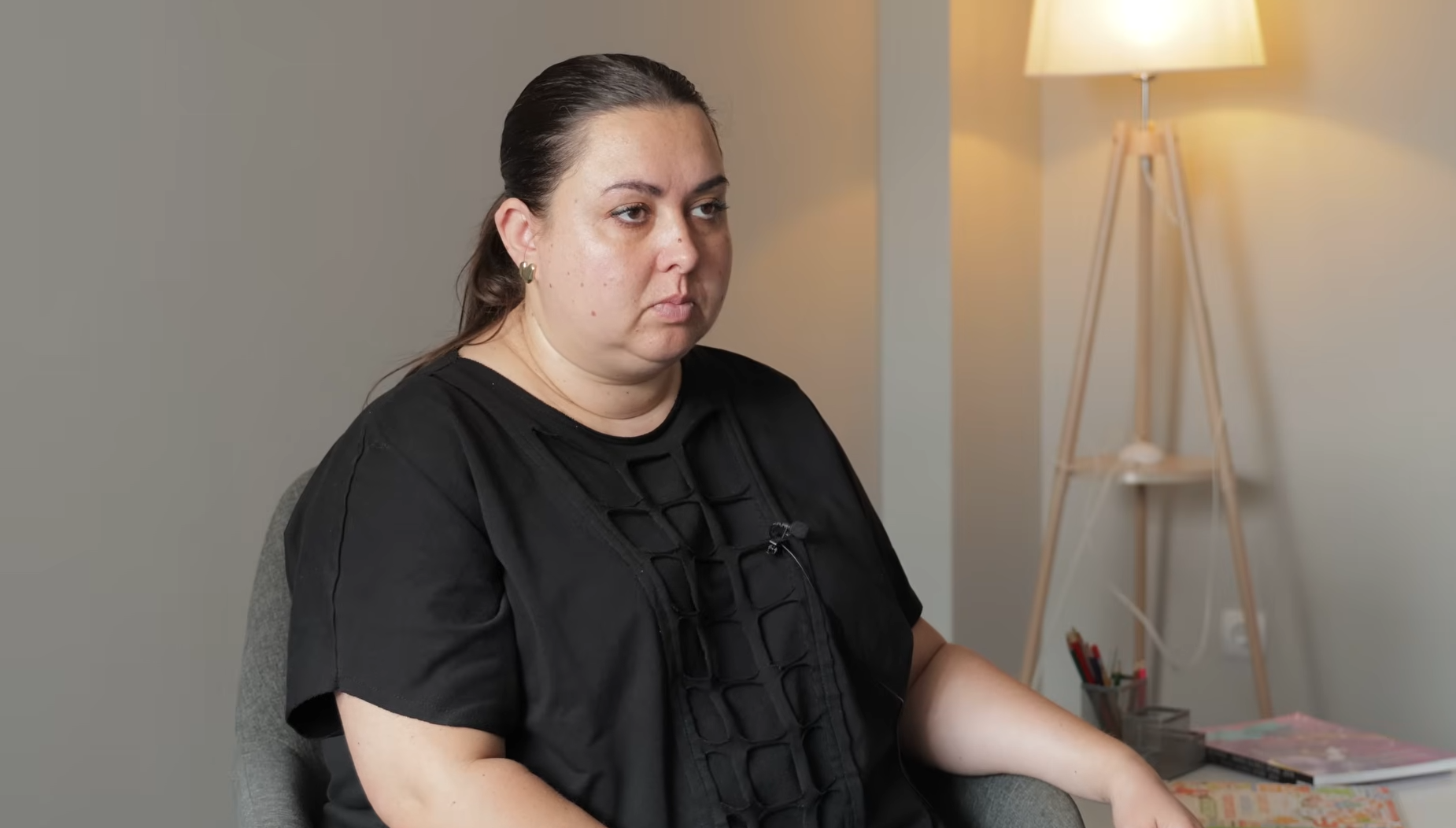 Daria Herasymchuk (photo: RBC-Ukraine)
Daria Herasymchuk (photo: RBC-Ukraine)
In 2023, Ukraine launched the Bring Kids Back UA humanitarian program to gather all information about abducted children in one place. Insiders say this topic resonates in every international forum, even those where requests for aid from Ukraine are usually met with cool indifference.
That makes sense eventually - forcible deportation is considered both a war crime and a crime against humanity. When it comes to children, the issue becomes deeply personal. That's why 41 countries have joined an international coalition to help Ukraine bring its children home. Behind them stand hundreds of NGOs that collect information, track children across Russia, and reach places inaccessible to officials.
Moscow insists that it isn't abducting children but "saving" them from combat zones, calling it an "evacuation." Children should indeed be somewhere safe, say the Russians, and it shouldn't matter where they're taken. But this argument falls apart when considering that Ukraine has repeatedly requested humanitarian corridors to evacuate its children.
"Russia never once agreed to a humanitarian corridor, even though we made countless requests," says Herasymchuk. "There were times we had buses ready, children on board, and shelling would start. Russians would fire on the roads we planned to use, creating an artificial humanitarian crisis, then swoop in to ‘rescue’ the children themselves.”
So far, more than 1,300 children have been returned to Ukraine. These are the children Russia "saved," and each tells a different story, but with the same core: in Russian foster homes, Crimean camps, schools, orphanages, or even detention basements, they resisted and wanted to come home.
Silent children
Iryna Tuliakova, Head of the Coordination Center for the Development of Family Upbringing and Child Care, oversees the reintegration of children returned from occupied territories and Russia. Her team's goal is to help the child cope with their trauma. They may never return to who they were, but they can learn to live with what happened.
"These kids are adults. They're small, but they're small adults. They're very quiet," she says. "I've worked in education for years. Schools are noisy - where there are kids, there's noise. But when children come back from deportation, you barely hear a sound. These children are silent," says the expert.
Tuliakova was most affected by the story of 11-year-old Illia from Mariupol. "He's a year older than my daughter. When I think of him, I think of her."
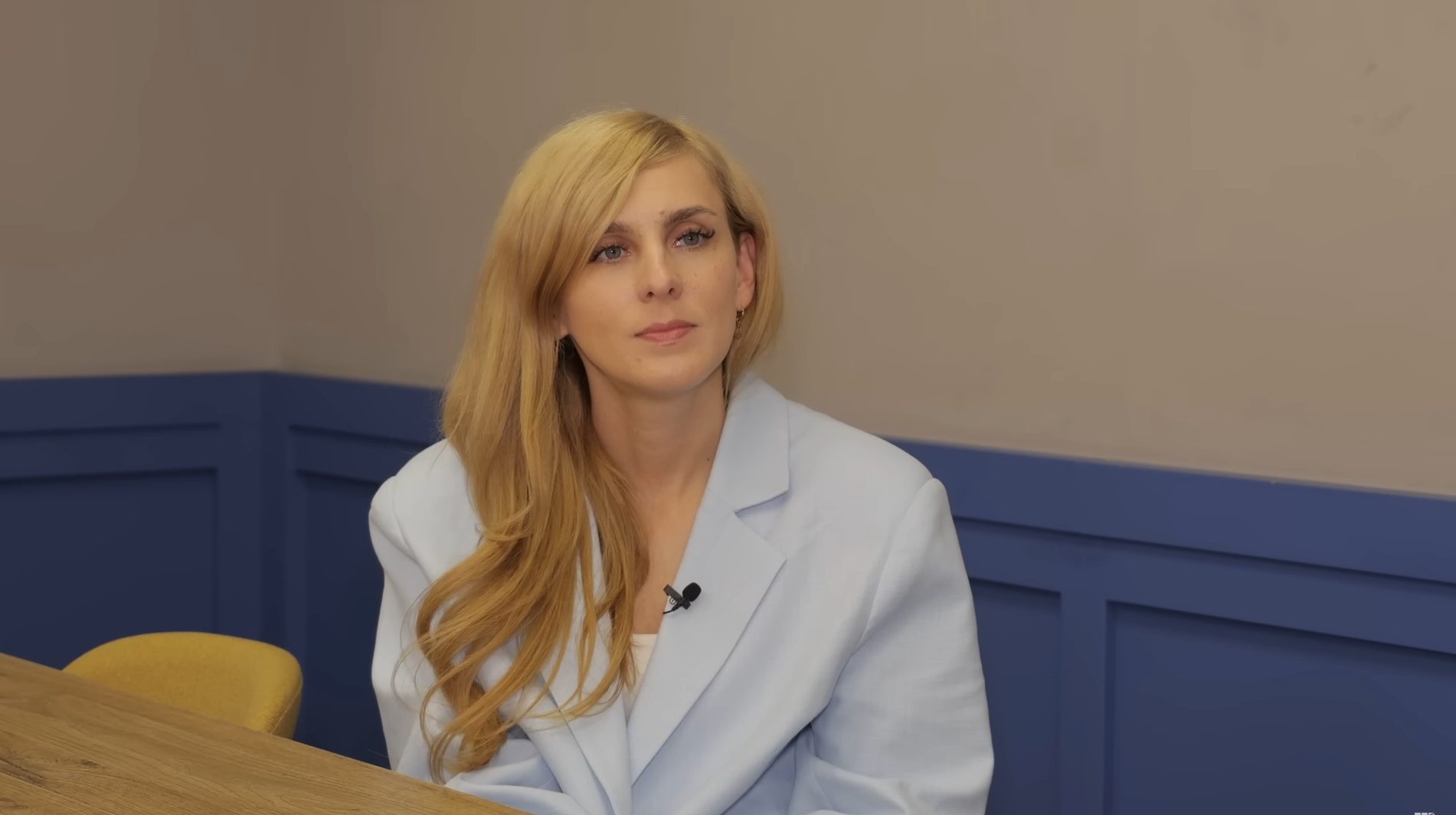 Iryna Tuliakova (photo: RBC-Ukraine)
Iryna Tuliakova (photo: RBC-Ukraine)
Illia was 10 when the war began. He had a normal life - mom, friends, school, and home. When the bombs fell on February 24, he understood what was happening. He and his mother first hid in their apartment, but then the Russians bombed their building. They went to a neighbor's home, and that's where it happened.
"We stayed at the neighbor's. Then there was an explosion, and I got hit in the legs," the boy says, pointing. "My mom got hit in the forehead. I realized she was dead when the neighbor checked her pulse. I held it together, kind of, but it hurt a lot. They (Russians - ed.) didn't just kill her. They didn't give her a chance. Or anyone in Mariupol. No one got a chance to survive.”
The neighbor buried Illia's mother in the yard. The boy talks about it without tears, like a small adult. With a serious leg wound, Russians took him to Donetsk for surgery, without anesthesia, he recalls. Then, Russian propaganda filmed a story about him.
"Even with my injury, they tried to turn me into a propaganda tool - teaching me to write in Russian. A doctor said, 'You'll stop saying Glory to Ukraine. Now it's Glory to Ukraine as part of Russia.' Just another way to brainwash us. But they couldn't get to me."
Ironically, that propaganda video helped his grandmother locate him. She already knew her daughter had died, but had no idea where her grandson was. Eventually, she managed to retrieve him from Donetsk. Illia was in psychological shock, afraid of loud sounds, partial memory loss. He remembered only what happened before his mother's death.
Illia also couldn't walk. Donetsk doctors removed only four out of eleven shrapnel pieces and left him bedridden. In Kyiv's Okhmatdyt hospital, he got proper care. Today, he lives with his grandmother and is undergoing rehabilitation.
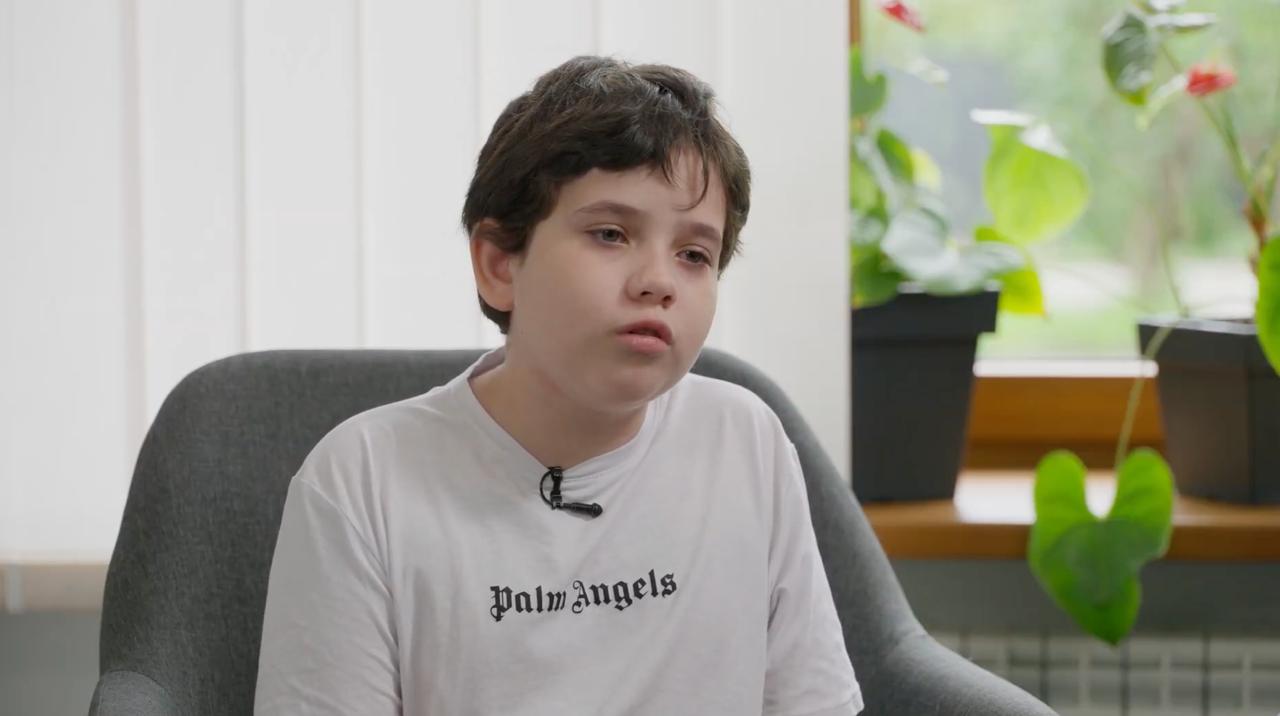 Illia from Mariupol (photo: screenshot from Bring Kids Back UA video)
Illia from Mariupol (photo: screenshot from Bring Kids Back UA video)
Today, people working with children in Ukraine describe several scenarios of what happens to a child after forcible deportation. These include foster families, children being shuffled between institutions, and one of the most common scenarios - a summer camp. Children are taken there allegedly for "recreation."
Russians are particularly fond of this narrative and use it wherever possible. Just one example: Lvova-Belova, when she talked about Ukrainian children at all, would often mention how Russian soldiers took them away "to recover."
Most often, this refers to facilities in occupied Crimea, less often to Krasnodar or other southern regions of Russia. Ukrainian children talk about Promenystyi, Lazurnyi, Druzhba, and other camps on the peninsula. The recreation program includes pearl barley with canned meat, morning roll calls with the Russian anthem, and humiliation from a former Berkut officer and now deputy head of camp security, Valery Astakhov.
One of those who directly encountered Astakhov was a 19-year-old Vlad from Kherson. When the city was occupied, the boy was taken at night by Russian soldiers to the river port. From there, along with other children, he was transported to the left bank, loaded into buses, and told they were going to Crimea for recreation.
Astakhov met them at the Druzhba camp and immediately laid out the rules - every morning, Ukrainian children had to sing the Russian anthem, raise the Russian flag, and speaking Ukrainian was forbidden. Vlad decided to, as he calls it, 'brighten the day."
"I took my underwear, walked up to the flagpole, took down the Russian flag, and hung my underwear there instead. Then I raised it, went to the toilet, and threw the Russian flag away," says the child.
A local boy reported Vlad to Astakhov. The deputy head of security came to his room with counselors and said Vlad would be punished, offering two options: a psychiatric hospital or five days in isolation. The boy chose isolation.
After some time, Vlad was transferred to the Promenystyi camp. Weeks dragged on, and the children began asking when they would be taken home. The adults told them that probably never.
"The kids are waiting, and they're told - well, your parents can come and pick you up, but the parents can't. And then they say - see, your parents didn't even try, they didn't want you. And teenagers I talked to say - I talk to my mom on the phone, hear her crying, then hang up, listen to the counselors, and start to wonder—maybe it's true. That's how their (Russian - ed.) system works," says Herasymchuk.
For the first time, Vlad managed to call his mother from Promenystyi. She said she would find a way to get him back. Meanwhile, the child was already being transferred to Lazurne, to a naval military academy. Vlad stayed there for nearly six months while his mother tried to locate and reach him. When she finally crossed into Crimea, she was detained on suspicion of being part of a sabotage group.
“When they took her, security services came to me, asked if I wanted to return to Ukraine, whether I was leaving, and said I had no future there. Three days later, they released my mom. A week later, I returned to Ukraine. When you’re under Russian control, you’re not allowed to have your own opinion.”
While the children are in camps, efforts are made to "reprogram" them. Besides pressure, the kids are constantly talked to. Many recount that Astakhov and FSB officers would periodically take children for rides in cars. The kids barely remember what was said during those rides, which they themselves find strange. But there are also simpler methods of influence, and the children talk about them almost in chorus.
"Astakhov told us all Ukrainians are kh*khols. He called us Nazis, fascists, pots. He burned the Ukrainian flag in front of us. Swore at us and said we were stupid," recall Zhenia and Taia, who were eventually brought back to Ukraine.
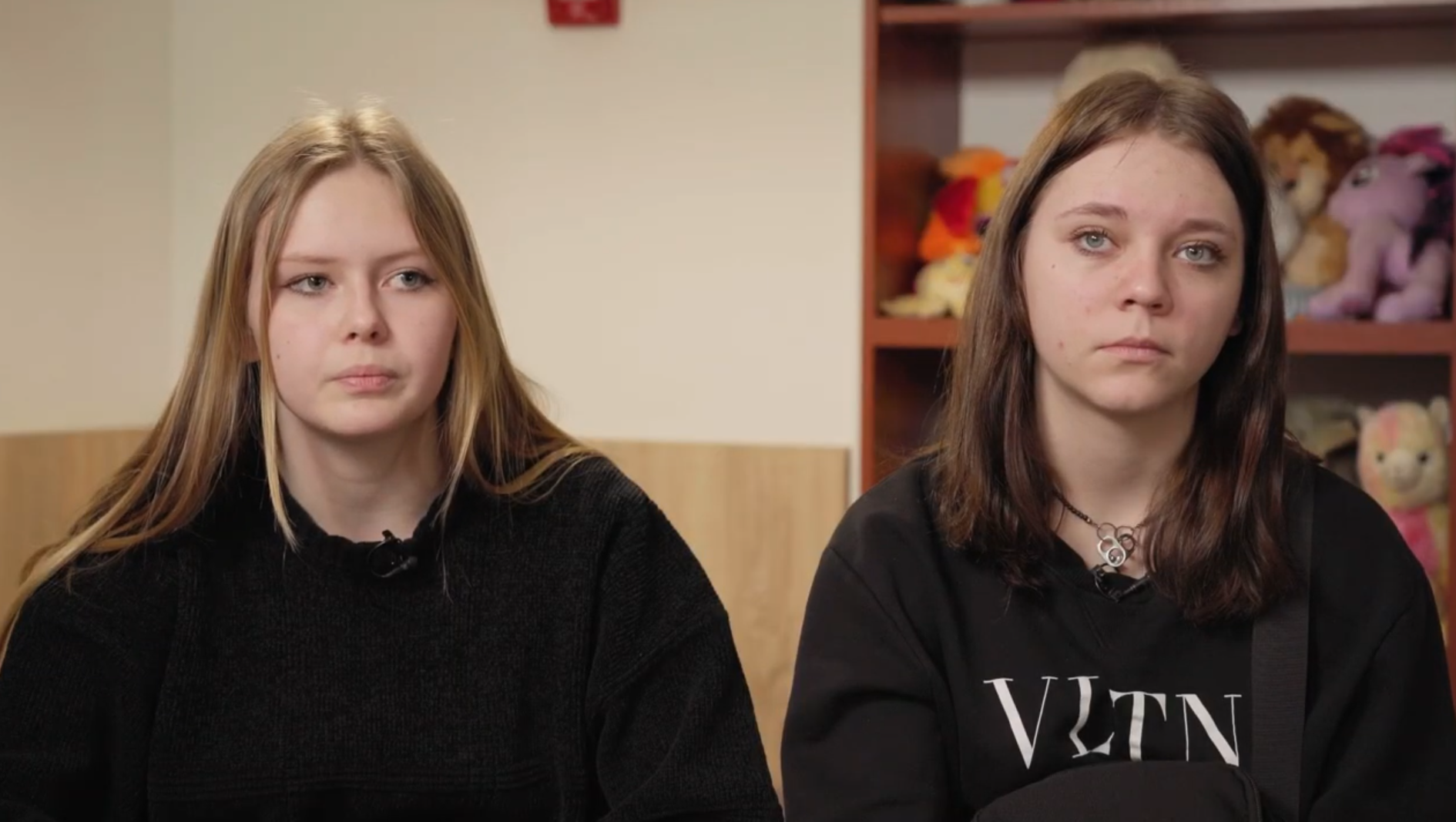 Zhenia and Taia (photo: screenshot from the video Bring Kids Back UA)
Zhenia and Taia (photo: screenshot from the video Bring Kids Back UA)
"They fed us like dogs. Gave small portions, half the kids were still hungry. The soup was watery, with potatoes, rice, or some other porridge. It was safer to eat nothing at all," says 10-year-old Vitalik.
"They don't ask there. They force you," adds a girl whose face is hidden.
A child can be held in the camp system for longer than six months. After countless attempts to convince them they're no longer wanted by their family, they're sent into foster care. There are very few publicly available stories about this - bringing children back from foster families is extremely difficult. Their names and places of birth are changed, they're hidden deep inside Russia, and every effort is made to integrate them into Russian society. In these cases, the foster family mostly plays a background role.
"A family is just people who get paid and are very afraid of the children. Kids say their foster parents would lock their bedroom doors at night. They were really scared that this little Ukrainian would come and eat them in their sleep," adds Daria Herasymchuk.
Vlad Buroak’s story is considered a separate case. So far, there aren’t many such recorded incidents. He wasn't sent to a camp or a foster family. Vlad was sent to a detention center. The 16-year-old was captured on April 8, 2022, while evacuating from Melitopol. His car was stopped by a soldier from Chechnya, who immediately got angry - he didn't like that Vlad was reading Ukrainian news.
"He pulled me out of the car, pointed a gun at me, and asked - should I shoot you right now or just smash your phone? I was terrified - it's a feeling I can't describe, because you realize they could kill you literally for nothing."
Vlad was escorted and taken to a filtration camp, and from there - "to the basement." He was placed in a solitary cell about three square meters in size. The echo was strong, and the boy could hear everything happening nearby, such as torture by the Russians.
"The scariest thing I saw was a man hanging by his hands from the ceiling. Not only was the entire floor beneath him soaked in blood. There was a small bucket under him, maybe a liter in size, also filled with blood. Next to him was a table, where a Russian soldier sat calmly writing down his testimony."
At first, Vlad was alone in the cell. He was so lonely and scared that he started talking to himself to stay sane. Then another boy was put in with him. After three days of continuous torture, the boy broke down and repeatedly tried to take his own life right in front of Vlad. When he cut his veins, Vlad was ordered to clean up after him. He decided he wouldn't show any emotions to the Russians.
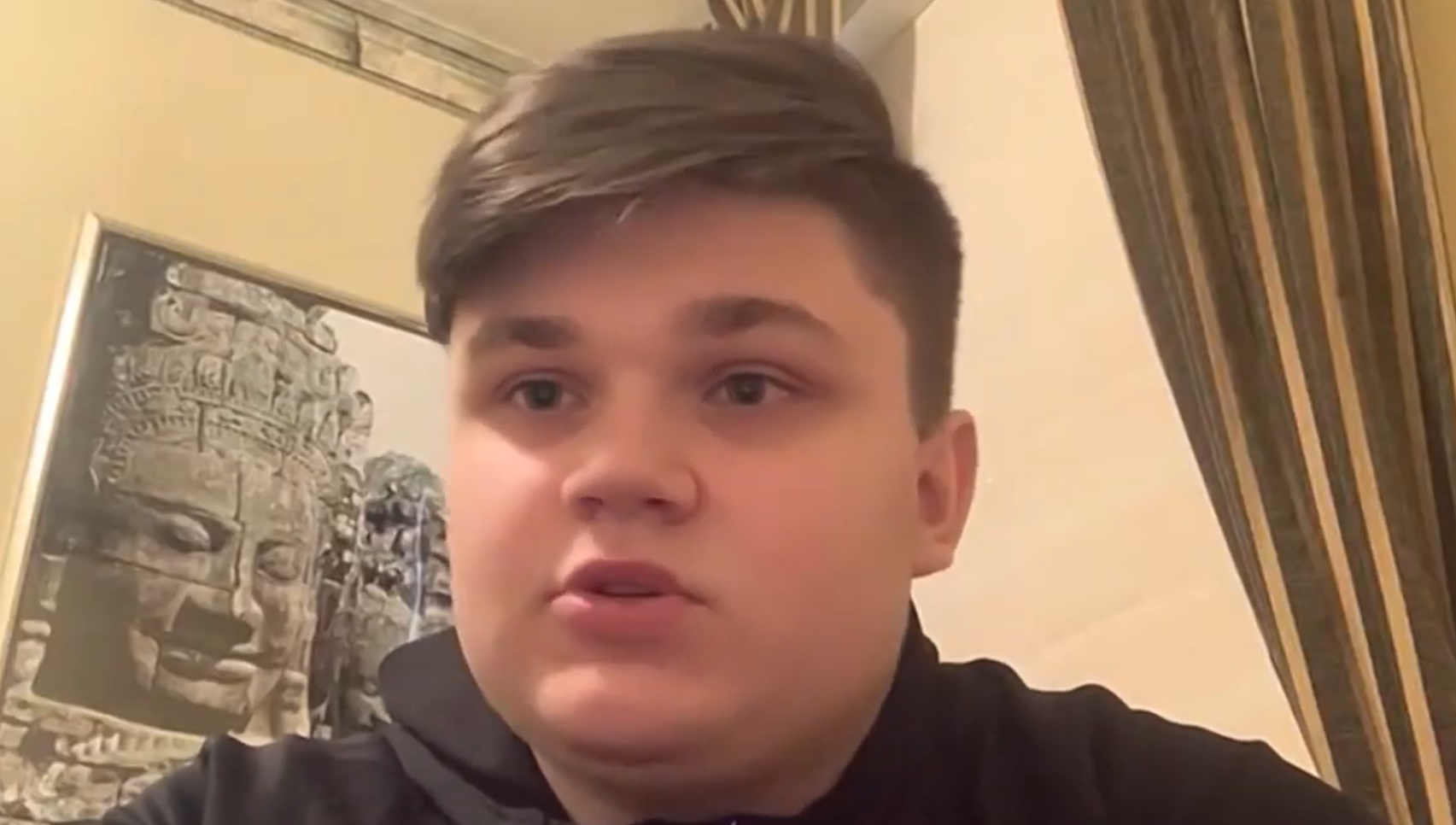 Vlad (photo: screenshot from the video Bring Kids Back UA)
Vlad (photo: screenshot from the video Bring Kids Back UA)
"In those moments, you can't show any feelings. A few times tears came, but I was so afraid - if they see me crying, they'll think I've broken, that it's time to get rid of me."
Vlad was held captive for 90 days. After three months, he was released. On the way, he was picked up by Ukrainians evacuating to Zaporizhzhia. On government-controlled territory, his father was waiting for him right on the highway. In an interview, the 16-year-old admits he "rethought life."
'When I was in the car, I felt unbelievable joy that it was finally over. But it's like your heart knows everything’s okay, but your mind won't let go. I've completely rethought my life, the value of life. I realized that no matter how hard a situation is, you can get through it. We need to end this war as soon as possible."
Returning home
Case manager Natalia Humeniuk is one of the first people to meet returning Ukrainian children - those fleeing from parents on occupied territories, those sent to the mainland by their parents, and those recovered from Russia and camps. A boy whose nose was broken with a rifle butt - Natalia shows where the scar is now. A girl who finished two schools in Luhansk, local and Ukrainian online, because she wants to study in Kyiv.
Children admit they smile for the first time in a long while when they cross into Ukraine. Natalia says they're usually frightened and mistrustful, especially those who lived under occupation for a long time.
"One kid from Donetsk region has been living here for a while, tells me: 'I go to McDonald's here. We didn't have that back home, and here there are so many.' It's a normal thing for us, but it's so cool for an 18-year-old boy. I myself love going to McDonald's sometimes, you know? And he had that taken away," notes the case manager.
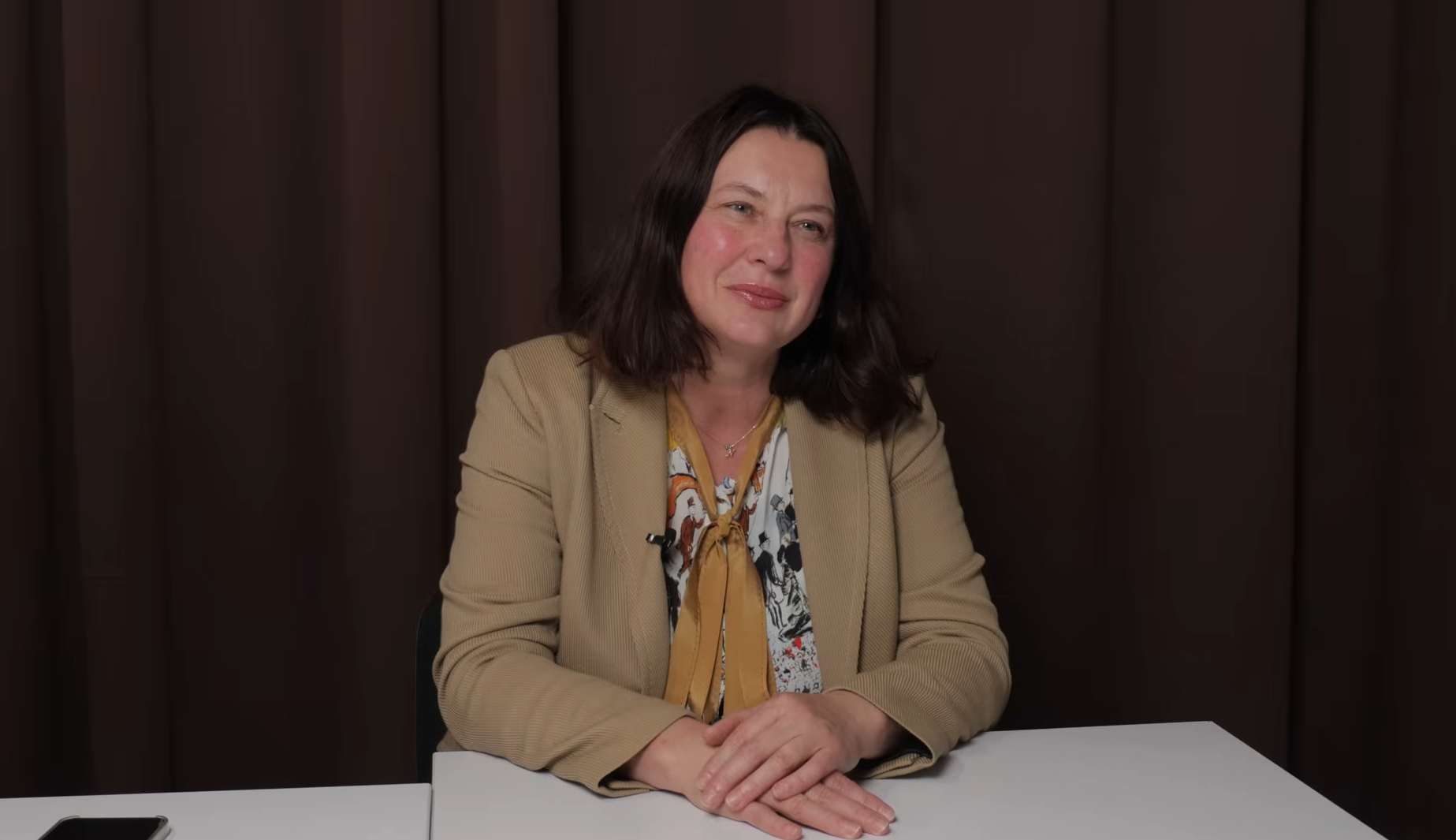 Natalia Humeniuk (photo: RBC-Ukraine)
Natalia Humeniuk (photo: RBC-Ukraine)
In Ukraine, children returning home are provided with all necessary help. Specialists talk to them right away, assess their physical, emotional, educational, and domestic losses. They're given essentials for the first weeks, families receive about 50,000 hryvnias in support, are provided with housing, and given grocery vouchers. A case manager is then assigned to the child, who designs an individual recovery plan and begins working with them.
Many returned children have health issues. In the occupied territories or Russia, these were neglected, so some cases are shockingly severe. And that's not even touching the psychological trauma, which will take years to heal. But many adults working with these children are astonished by their resilience.
"How do they endure? Well, that's our nation. How else can you explain why we're still standing? It's been years of full-scale war, and we're holding on. We've adapted. And so have the children," says Iryna Tuliakova.
On average, working with one child takes six months to a year. A long-term "package" runs for about a year and a half. But children are never abandoned - their progress is tracked.
Russia continues to steal Ukrainian children and reshape them into part of its society. For the Kremlin, it’s crucial not just to occupy territory but to turn the people living there into Russians.
In particular, Russians believe it's easier to do this with children, and to some extent, they're right. But every child brought back to Ukraine proves the opposite in every interview. They resisted. They wanted to come home. So instead of raising obedient citizens, the Kremlin has bred itself thousands more enemies, for generations to come.

